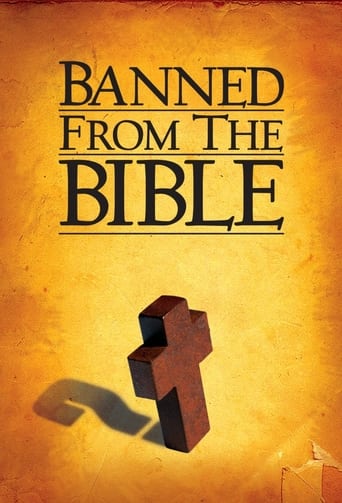

Banned from the Bible is a documentary television series that originally aired on the History Channel as Time Machine: Banned from the Bible in 2003. Banned from the Bible discusses the ancient books that did not become part of the biblical canon. The series was continued with Banned from the Bible II in 2007.
 AD
AD
All Prime Video
Cancel anytime


There are still more of these revealing sections omitted from the Bible are brought to light. With the guidance of renowned scholars such as Kenneth Hanson, author of The Lost Gospels and Rabbi David Copeland, discover the Testament of Solomon, the legend of Lilith, the story of Aseneth, the complete saga of Daniel and gain insight into the Apocrypha, the so-called "hidden writings." BANNED FROM THE BIBLE II vastly expands our grasp of one of the most important texts in human history. Understanding what was left out of the earliest Bible gives us critical tools for analyzing the Scriptures as they have reached us today.

Travel back to the blistering sands of the Holy Land, into the onion-domed chapels of Eastern Orthodox churches and onto the pages of the Koran. Unearth the trail of chapters that were left out of the ultimate version of the Scriptures. Included in the Koran is "The Life of Adam and Eve," a detailed account of the creation story written before Jesus was born. The incestuous account of "The Book of Jubilees" was included in the Orthodox Old Testament and the Dead Sea Scrolls. "The Book of Enoch," an ancient bestseller, relates the story of the man said in Genesis to have walked with God and been assumed directly into heaven. This fascinating collection offers a fresh perspective on the figures at the foundation of faith.
Banned from the Bible is a documentary television series that originally aired on the History Channel as Time Machine: Banned from the Bible in 2003. Banned from the Bible discusses the ancient books that did not become part of the biblical canon. The series was continued with Banned from the Bible II in 2007.
The tv show is currently not available onine
Geoffrey Madeja
History ,